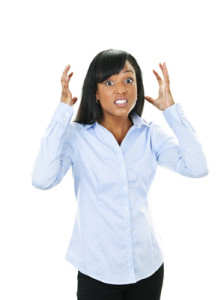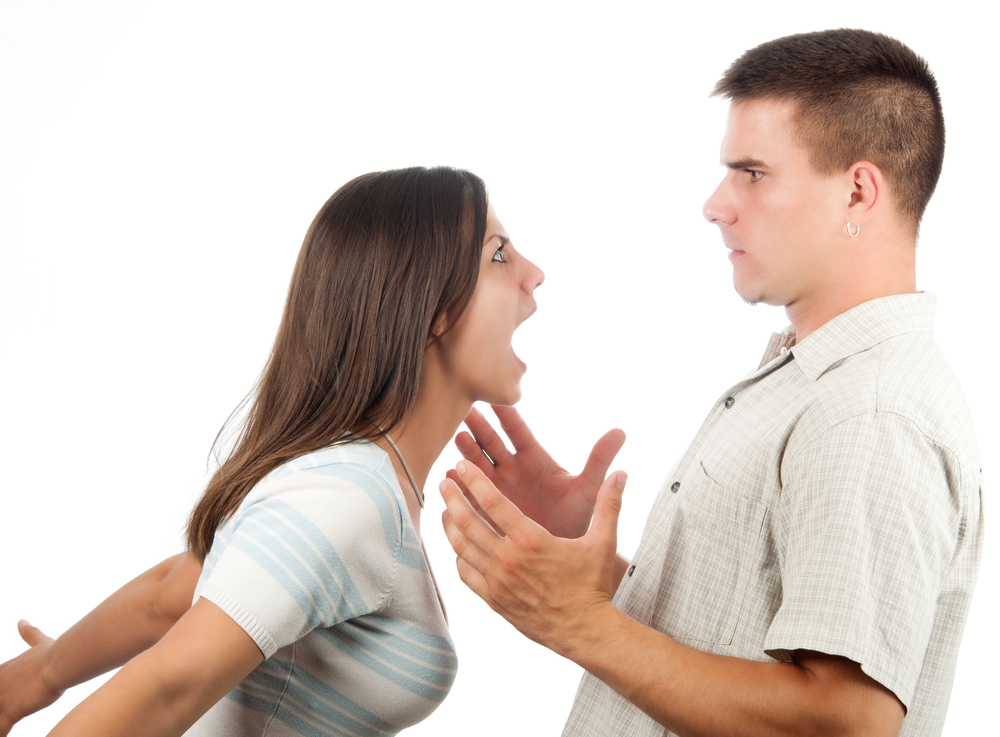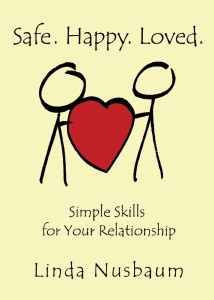Dealing with anger in a relationship can be difficult. Anger can push us away from our partner, so learning how to control anger’s influence on our lives and partner is incredibly important. Many of us haven’t learned effective methods for dealing with anger. If you’re reading this, perhaps you can begin now.
Everyone Experiences Anger in a Relationship

If you get angry at your mate, you are not alone. If you get really mad and yell or do other things to your partner when you get upset… again, you are not alone. Anger is pretty common in relationships. And this is not an article about how terrible it is. This is a message about what to do about it.
I get angry. I have been getting angry since I was a little girl. It would be great if I learned what to do with my anger when I was young, but I didn’t learn that lesson. So, for many years of my life when I felt misunderstood, or something was unfair, I would rage. I was really good at doing this. And when I was mad, everyone knew. I made my point. “Linda’s mad.” In fact, my older sister even called me the angry child. Everyone knew.
Dealing with Anger Well Becomes Increasingly Important as We Mature
But as I got older, I moved out of my family home and made my way in the world. My new circle of friends, work mates, and relationships were less forgiving and accepting than my family. I had grown up with them. They got used to how I was. New people were not that invested, and often after I had blown up I would feel so bad, I would try and repair the damage, only sometimes I couldn’t.
And then I would feel really bad. Not until I learned about my anger was I able to learn other ways of responding to my pain. Yes, all anger is about pain. The people who feel anger feel a pain first. Anger is a response to the feeling. Often it boils down to “something isn’t fair,” or “I was mistreated,” or “I felt rejected.”
Dealing with Anger Means Understanding and Addressing Our Pain and Patterns

These states feel awful. Getting mad is what some of us do when we feel them. But using anger in a relationship can cause a lot of damage. I know this too. What helps is looking at your pattern. Here’s mine: I explode, I leave the room, and then I come back after calming down. This is my pattern. Learn your pattern, just like I described mine.
Once we understand our pattern we move closer to altering it. Now, to change a life-long pattern, which is probably the case for many of us, it takes some time. But that doesn’t mean you can’t improve your relationship right now. I know that after an upset, before I can return to my partner, I figure out what I did that was part of my angry reaction. I could have yelled, stomped away, or said something sharp. Whatever I did that wasn’t nice, that’s on me. And I owe an apology, and I say “I’m sorry” to my mate.
Make Sure to Apologize and Rebuild After Lashing Out in Anger
That’s what I do. I apologize for my angry response. I don’t apologize for living or for having an emotion, I just say “sorry” for not expressing it kindly. This one action tells your partner you care for them, you are aware of yourself. It also gives them hope.
You probably have been feeling bad about your anger for a long time. You are now working on it: you are dealing with that anger. I want to give you hope. It is fixable. More tools coming in the next post.
So now you have a start. And here’s what happens when I follow this apology script: I feel better, my partner feels better, and we reconnect with each other a lot quicker.
And that’s what a good relationship needs. Connection.
Learn More About Constructively Dealing with Anger in a Relationship
Can’t make it on Monday? Learn more about dealing with anger in a relationship and, when you just can’t control it, how to apologize and make things up to your mate. Read Linda’s book, Safe. Happy. Loved. Simple Skills for Your Relationship. It just might help you improve your relationship or marriage be a slightly more peaceful one. Give it a read.
Get Couples Counseling
Come in for couples counseling. Couples counseling can help you and your loved one get the most out of your relationship. It'll equip you with coping strategies and tools for communication that can help you argue less and love more.


